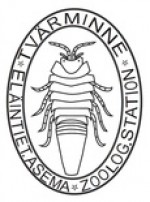Tvärminne Zoological Station

Overview
Tvärminne Zoological Station (TZS) belongs to the Faculty of Biological and Environmental Sciences of the University of Helsinki (UH). TZS is located at the entrance to the Gulf of Finland in the Baltic Sea. Having been established in 1902, it provides good background data for studying long-term environmental change. One of the weather stations of the Finnish Meteorological Institute is located at TZS.
TZS serves as a centre for a variety of high-quality biological research, carries out environmental monitoring, and offers facilities for visiting scientists, field courses and seminars. The brackish water environment, characterised by vast archipelagos with high habitat complexity and, provides an excellent representation of the Baltic Sea ecosystem and serves as a meaningful comparison to other coastal ecosystems in Europe. TZS has a well-equipped laboratory, several research vessels, sampling equipment, diving facilities, aquarium rooms and long-term databases. Marine research at TZS focuses on the biodiversity and functioning of the Baltic Sea ecosystem and the anthropogenic stressors affecting the system. The research covers ecology, ecophysiology, ecotoxicology, taxonomy, and behavioural and evolutionary biology.
Facilities
TZS has two larger boats, R/V Saduria (14.4 m) and R/V J.A. Palmén (10.3 m), a hover craft for winter sampling, and several smaller boats for coastal sampling. There are diving facilities and standard sampling equipment such as water samplers, plankton nets, sediment corers and grabs, dredges and trawls, and handheld probes (CTD, oxygen). In addition to the experimental facilities with flow-through seawater in the laboratory, the station is well equipped for conducting large-scale field experiment. A mass-spectrometer and an isotope laboratory are available. TZS has a class C isotope laboratory and is certified as a University of Helsinki facility for experiments with animals (fish).
Long-term monitoring data from the TZS area is available on temperature, salinity, nutrients, chlorophyll, zooplankton and benthic macrofauna. Access to the FINMARI culture collection is also offered, with 220 strains of Baltic Sea phytoplankton.
The station is operational all year around and we welcome visiting scientists to conduct their research at the TZS. We offer accommodation for more than 80 persons at a time. Please see details of travel and lodging, as well as contact information, from our homepage.


